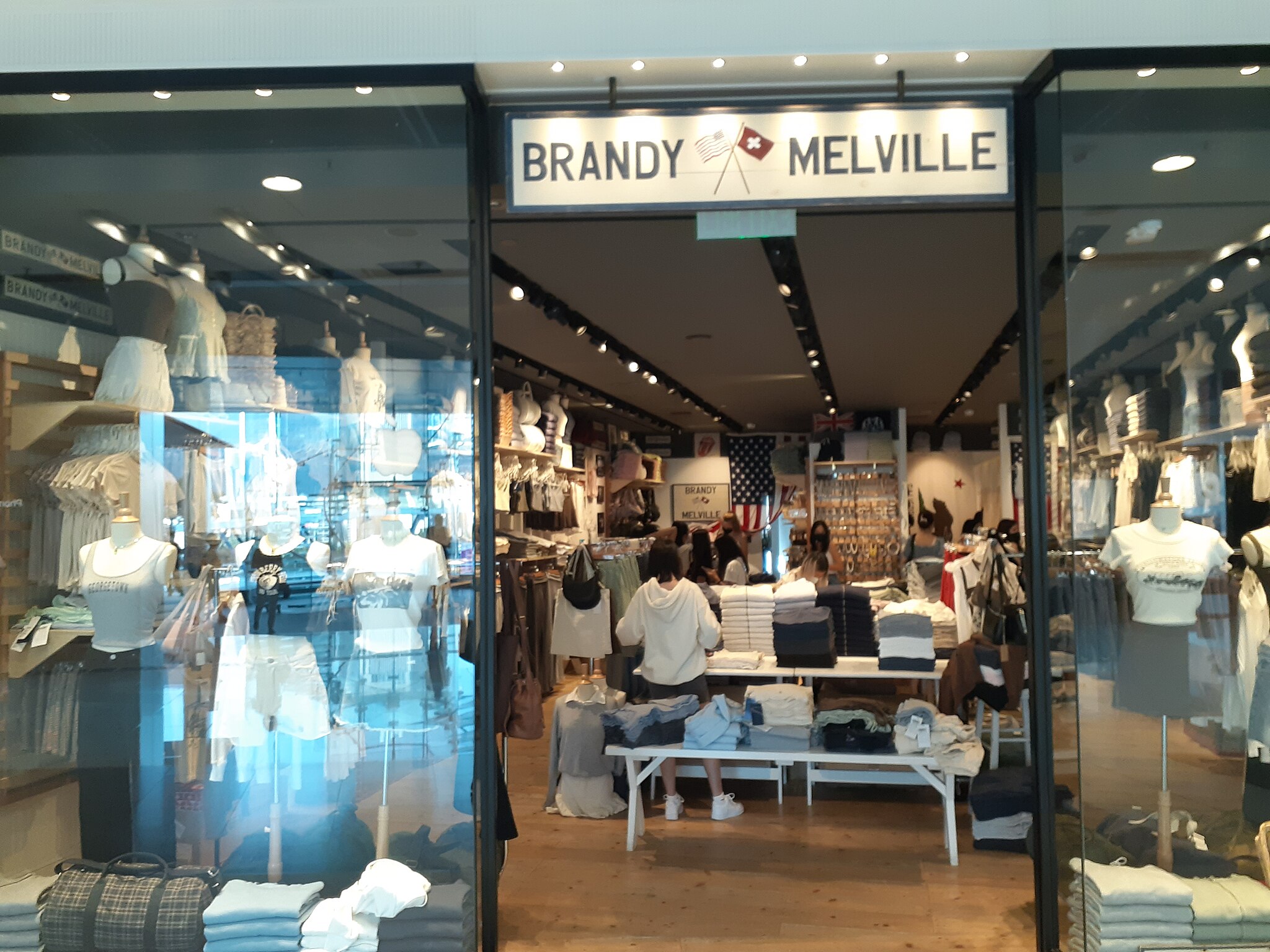Exploring the Brandy Melville Brand: A Deep Dive into its Rise, Controversies, and Societal Impact
The article delves into Brandy Melville, a renowned clothing brand celebrated for its strong resonance with teenage girls and distinctive brand aesthetic. This brand rose to fame on social media, captivating a specific demographic with its trendy yet essential fashion pieces, creating a significant online following in places like Brandy Melville, Canada, and Brandy Melville, USA.
Brand Image and Popularity
Brandy Melville’s ascent on social media platforms such as Instagram, Tumblr, and TikTok has been meteoric, showcasing a unique aesthetic with small-sized clothing and a ‘one size fits all’ approach, making it highly accessible. This strategy, reminiscent of Abercrombie & Fitch’s allure to millennials, featured slender figures and predominantly white models, while events like Brandy Melville Black Friday sales further boosted its popularity.

Image credit: SZE SHEU gtm 001, CC BY-SA 4.0 <https://creativecommons.org/licenses/by-sa/4.0>, via Wikimedia Commons
Controversies
Despite its widespread appeal, Brandy Melville has encountered criticism for its fast fashion model and discriminatory practices. The documentary ‘Brandy Hellville and the Cult of Fast Fashion’ casts a spotlight on the brand’s questionable practices, including discriminatory hiring and its contribution to overproduction and environmental damage in the fast fashion realm.
Company Structure and Leadership
Brandy Melville’s enigmatic structure, with no public CEO or clear brand persona, adds a layer of mystery. Each store’s unique ownership model and Stephan Marsan’s elusive presence have sparked discussions about the brand’s transparency and accountability.
Allegations Against Company Leadership
Allegations against Marsan, suggesting a preference for employees with specific physical attributes, have marred Brandy Melville’s reputation. The practice of capturing daily outfit photos for ‘brand research’ and a hiring bias that seemingly promotes unrealistic beauty standards have drawn significant backlash.
Discriminatory Employment Practices
A lawsuit brought by a former employee accused the company of instructing managers to dismiss candidates based on weight or race, particularly targeting overweight or Black applicants. This claim, alongside allegations of relegating employees of color to less visible roles, has intensified scrutiny of Brandy Melville’s hiring practices.
Allegations of Toxic Workplace Culture
The brand has also been criticized for its controversial messaging, including insensitive jokes and memes, alleged sexual assault incidents, and problematic messaging around eating disorders. These actions, coupled with the CEO’s political expressions and the brand’s global expansion, have sparked widespread controversy.
Environmental Impact and Fast Fashion Practices
The documentary highlighted Brandy Melville’s commitment to a fast fashion model, emphasizing rapid turnover and reliance on cheap labor. It exposed the brand’s role in contributing to garment production in sweatshops and the resulting clothing waste impacting countries like Italy and Ghana.
Response and Sales
Despite facing backlash on social media, Brandy Melville reportedly continued its operations unchanged. The documentary’s director pointed out the significant influence of consumer behavior on promoting change, noting the brand’s continued high sales figures amidst controversies.
Call to Rethink Fashion
The film calls for a reevaluation of our fashion consumption habits. It advocates for sustainable practices like opting for natural fibers, supporting secondhand clothing markets, avoiding synthetic materials like polyester, and preventing clothing waste from ending up in landfills.
The article delves into Brandy Melville’s ascent in the fashion news, highlighting its cult following and the controversies that shadow its leadership, prompting a critical examination of its influence on fashion and society. It discusses allegations against Brandy Melville, touching on discriminatory practices, workplace culture, environmental damage, and the brand’s stance. The piece advocates for consumer empowerment and a shift towards ethical brands and secondhand clothing, questioning the sustainability of Brandy Melville’s business model. It also examines the brand’s aesthetic and exclusivity, its impact on beauty standards and body image, fueled by social media influencers and celebrity trends, and the implications of its basic styles and affordable pricing on overproduction and unrealistic standards. Ultimately, it calls for reevaluating retail culture and fashion consumption, urging a move from unsustainable practices to more responsible, inclusive fashion choices.
Source:
Adrian Horton (April 9, 2024). A very odd and ugly worldview’: the dark side of fast fashion brand Brandy Melville. The Guardian. https://www.theguardian.com/tv-and-radio/2024/apr/09/brandy-melville-hbo-documentary. Accessed April 12, 2024
Other posts you might like:
The Resurgence of Fur in Fashion
